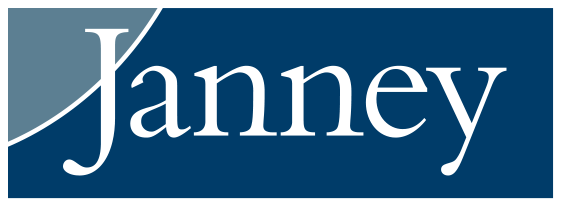Used responsibly and strategically, however, credit cards can help manage your finances, assist with short-term cash flow needs, and facilitate the building of stronger credit.
Credit card use can potentially lead to excessive debt, when not used wisely. But if you pay off your balances each month, it can serve as valuable cash flow management tool. In addition to building your credit rating, credit cards can help consolidate and pay down debt, ensure you have sufficient liquidity at all times, and help you earn rewards or cash back on your purchases.
Credit Card Planning & Cash Flow
Start by taking a little time to understand your personal ‘free cash flow’—the disposable income and other assets you currently have to work with. Assemble your statements, tally your income, assets, and debts (including any outstanding credit card balances). Add up what you’ve spent in each of the past several months. It may actually be easier to track if you pay more of your monthly expenses through a credit card instead of cash, since many card issuers automatically categorize your expenses.
Some items you can typically put on your credit card as part of your monthly spending plan include:
- Utility payments
- Recurring bills (e.g., cable, cellphone, and internet services)
- Groceries
- Gas
- Online purchases
- Other regular purchases
- Big ticket items
More Effective Cash Flow Management
Your primary goal may be to save as much as possible each month. But what happens when an unexpected expense arises? Rather than cutting back on your monthly savings rate, your credit card can serve as a valuable cash flow tool.
Used effectively and wisely, credit cards can provide the opportunity to you better manage your cash inflows and outflows.
What to look for in a credit card
When comparing credit card offers, be sure to read the advertisement or application (even the small print) and carefully consider the following:
- What is the annual percentage rate (APR)? APR is the interest rate that applies to any outstanding balance carried from month to month. If you plan to carry a balance, it's especially important to look for a card with a low APR. But don't be fooled by ‘low introductory rates.’ Often, these may only apply for a few months—or only to balance transfers (not new purchases). Make sure you clearly understand what rate will apply once any introductory period is over.
- Is the APR fixed or will it change over time? If the rate is variable, you can expect it to go up or down periodically since it's tied to an index (like the prime rate) which changes. If the rate is fixed, it won't fluctuate—but that doesn't mean it will stay the same forever. A credit card issuer can change your rate at any time, as long as you're given a 45-day advance written notice of the rate change.
- How long will you have to pay your balance in full before interest starts accruing? If you plan to pay off your balance every month, look for a card that offers a relatively long grace period (e.g., 25 to 30 days).
- What fees will apply? Some credit cards charge an annual fee. Typically these types of cards have higher reward rates and additional benefits which may include a welcome bonus, annual statement credits, or travel perks (i.e. access to airport lounges). In order to get the most value from a credit card with a fee, you must use your card and its benefits enough to cover the annual charge. It is important to be mindful of how frequently you are going to utilize the card, if its benefits match your lifestyle, and whether or not there are transaction costs. Other fees you should consider are the fees you'll be charged for transferring your balance, using your card to get a cash advance, exceeding your credit limit, or paying your bill late.
- What type of cash back offers are available? Look for a card that might offer bonus cash back on the kinds of expenses you incur most often—such as supermarket purchases or gas.
Even after carefully reading through a card offer, don’t hesitate to call the credit card issuer directly and ask any questions before signing an application.
4 Keys To Effective Card Usage
Credit cards are most beneficial when you follow these best practices:
- Use your credit card in place of cash— purchasing only what you can afford.
- Become familiar with all rewards and perks your credit card offers. Many credit cards offer additional benefits in addition to rewards.
- Pay off your credit card balance on time every month to avoid accruing interest and late fees.
- Use your credit card statement as a convenient way to monitor spending habits.
Working With Janney
Depending on your financial needs and personal preferences, you may opt to engage in a brokerage relationship, an advisory relationship or a combination of both. Each time you open an account, we will make recommendations on which type of relationship is in your best interest based on the information you provide when you complete or update your client profile.
When you engage in an advisory relationship, you will pay an asset-based fee which encompasses, among other things, a defined investment strategy, ongoing monitoring, and performance reporting. Your Financial Advisor will serve in a fiduciary capacity for your advisory accounts.
For more information about Janney, please see Janney’s Relationship Summary (Form CRS) on www.janney.com/crs which details all material facts about the scope and terms of our relationship with you and any potential conflicts of interest.
By establishing a relationship with us, we can build a tailored financial plan and make recommendations about solutions that are aligned with your best interest and unique needs, goals, and preferences.
Contact us today to discuss how we can put a plan in place designed to help you reach your financial goals.
About the authors


Vice President & Director, High Net Worth Consulting
Read more from Shurdonna JosephRelated Articles
-
Cash & Borrowing
Life Events May Trigger Lending Needs
Life is full of events and circumstances that may throw financial curveballs. Which is why when i... -
Cash & Borrowing
Here’s What You Can Do to Prevent Check Fraud
Instances of check fraud are on the rise in the U.S. Below are some best practices to help you av... -
Asset Protection
Account Protection at Janney
Through every market condition, through every stage of your life—and your family’s life—Janney pr...



